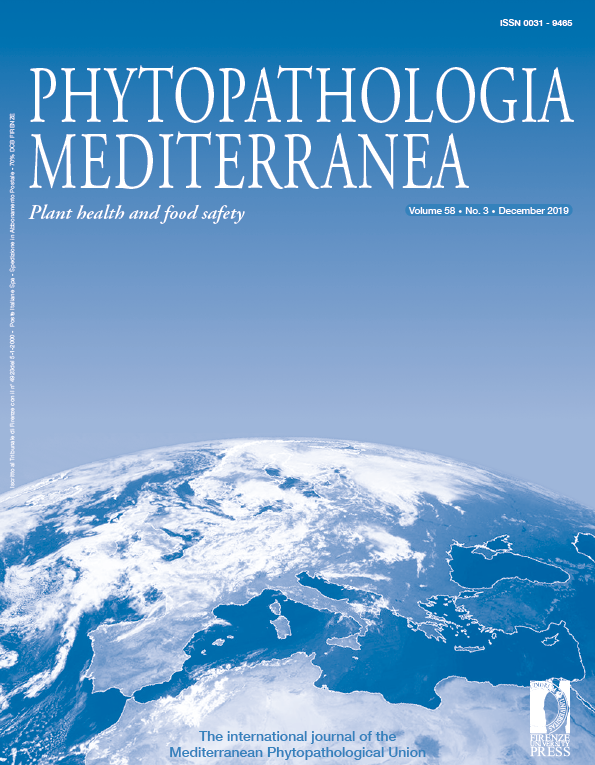Chlorine and mefenoxam sensitivity of Phytophthora nicotianae and Phytopthora citrophthora from South African citrus nurseries
Published 2019-12-30
Keywords
- Irrigation water,
- soilborne pathogens
How to Cite
Abstract
Phytophthora nicotianae and P. citrophthora isolates were subjected to mefenoxam and chlorine sensitivity evaluations at different concentrations, and for chlorine, different exposure times. Based on mefenoxam sensitivity, the isolates of the two species were divided in six sensitivity groups with EC50 values ranging from sensitive (0.04 ppm mefenoxam) to highly insensitive (greater than 123.69 ppm mefenoxam), with 86% of isolates being sensitive to mefenoxam. Chlorine sensitivity testing indicated strong interactions between chlorine concentration and exposure time for both species. Increased mortality was observed with increased concentration and exposure time to chlorine. For some isolates, close to 100% mortality was only reached at 6 ppm active chlorine and at an exposure time of 60 min. Because highly mefenoxam-insensitive isolates were detected from South African citrus nurseries, this fungicide should be used with care as a curative method for management of diseases caused by Phytophthora spp. It is recommended that chlorination of irrigation water, at 6 ppm active chlorine and exposure of more than 60 min, is used to eliminate P. nicotianae and P. citrophthora propagules from irrigation water as a preventative measure for these diseases.







